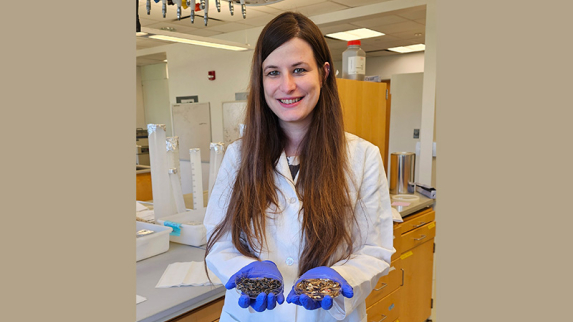Rutgers University-New Brunswick scientists have discovered a virus that caused a nationwide die-off of superworms, a common food for birds, reptiles, other pets and, more and more so, even for humans as an alternative protein source. In doing so, they pioneered a different way to search for and identify emerging viruses and pathogens in humans, plants and animals.
Using chopped up beetle carcasses forming a slurry and an electron microscope cooled by liquid nitrogen, the scientists reported today in Cell that they have discovered what they have titled Zophobas morio black wasting virus. The name is derived from the virus’s deadly effect on a species of darkling beetle, Zophobas morio, native to the subtropics, particularly in the insect’s immature larval stage when it emerges from its eggs as large, brown superworms. This species was named “superworm” because its larvae are bigger, at about 2 inches in length, than any others grown as feed.
The protein-rich larvae of Z. morio, which are dietary staples for captive, often exotic reptiles, birds, fish and amphibians worldwide, mysteriously began dying off in 2019, puzzling pet food suppliers and pet owners. Jason Kaelber, an author of the study and an associate research professor at the Institute for Quantitative Biomedicine (IQB) at Rutgers-New Brunswick, worked with Judit Penzes, the first author of the study and a postdoctoral associate at IQB. To read the full story.

